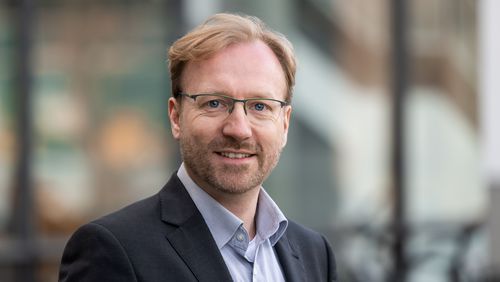Two projects in the fields of hearing research and political science have received funding from the state of Lower Saxony. The focus is on the influence of bilingualism on listening comprehension and the construction of social groups by political parties.
The influence of bilingualism on listening comprehension and the construction of social groups by political parties are the focus of two new research projects at the University of Oldenburg. These projects will receive up to 500,000 euros each over a four-year period from the Lower Saxony Ministry of Science and Culture (MWK) as part of the funding programme "Research Cooperation Lower Saxony – Israel".
In the first project, the two linguists Professor Esther Ruigendijk from the University of Oldenburg and Dr Hanin Karawani from the University of Haifa in Israel will investigate why bilinguals find it particularly challenging to understand speech in a noisy environment. In the second project, Oldenburg political scientist Professor Marius Sältzer will work with Dr Tristan Klingelhöfer from the Hebrew University of Jerusalem and Dr Alona Dolinsky from the Vrije Universiteit Amsterdam to examine the question of whether, through their communication with voters, political parties and politicians actually construct the identities of the social groups they represent, rather than simply appealing to existing identities or groups.
Most people across the world use more than one language in everyday life – a fact that has hardly been taken into account by hearing research to date.
Esther Ruigendijk
In their project "Bilingualism in challenging listening conditions: Is it language specific or a general mechanism?", Ruigendijk and Karawani plan to jointly explore how language experiences at an early age, in particular bilingualism, impact the processing of language in the brain, and how this affects a person’s ability to understand language. "Most people across the world use more than one language in everyday life – a fact that has hardly been taken into account by hearing research to date," says Ruigendijk. The aim of the project is to pinpoint why a noisy environment poses particular challenges for bilingual people.
The researchers and their teams will conduct a series of experiments with test subjects to determine whether this effect is the result of a fundamental neural mechanism by which both languages are “co-activated” in the brains of bilinguals, even if they are speaking in only one of them. Through a combination of language tasks and brain wave measurements the scientists will examine whether and to what extent the relationship between languages influences listening comprehension in noisy environments. The team is looking for bilingual people with the language combinations Arabic-Hebrew, Arabic-German and German-Dutch, as well as people who use Hebrew or German as their only language to participate in the experiments. Karawani spent several months at the University of Oldenburg on a Humboldt Foundation scholarship last year and worked with Ruigendijk in the Cluster of Excellence Hearing4all to develop the basis for their joint research project.
In recent years, there has been a staggering increase in cultural and identity-based politics in many countries, leading to increasing polarisation of society.
Marius Sältzer
The second funded project, "The Construction of Groups in Politics" (CONSTRUCT), will investigate a new theory about the relationship between political parties and social groups. "In recent years, there has been a staggering increase in cultural and identity-based politics in many countries, leading to increasing polarisation of society," explains Sältzer, who heads the Digital Social Science research group at the University of Oldenburg. The researchers will explore the idea that, rather than simply representing existing social groups, for some time now political parties been actively constructing these groups. "Parties are trying to win over new groups of voters by inventing or disseminating political identities, thereby shifting group boundaries," Sältzer explains.
The team will initially use machine learning methods to seek evidence in the communication of political parties in Israel and Germany that supports this theory – such as advertisements, party programmes, speeches and social media posts. The researchers will then conduct experiments with volunteers from both countries to determine whether their perception of belonging to a group can be changed through political communication. The team hopes that the results will provide a new perspective on the relationship between political parties and social groups, as well as a basis for creating new tools for political campaigning and improving political representation. In addition, political educators could build on the results to empower citizens to better understand the methods and motivations of political organisations.
In the programme "Research Cooperation Lower Saxony - Israel", the state of Lower Saxony is funding eight projects in the humanities and social sciences which are jointly carried out by academics from universities and research institutions in Lower Saxony and Israel. The funding comes from zukunft.niedersachsen, the joint funding programme of the Lower Saxony Ministry of Science and Culture and the Volkswagen Foundation.




